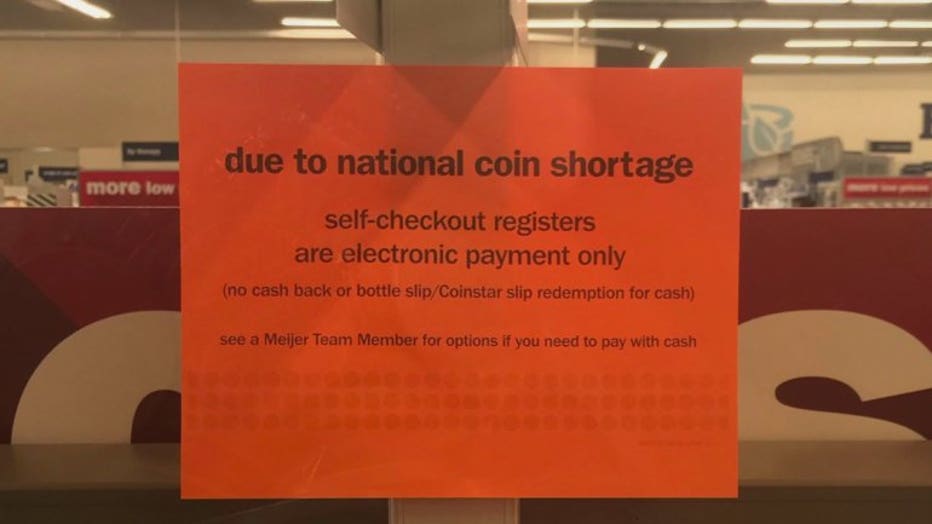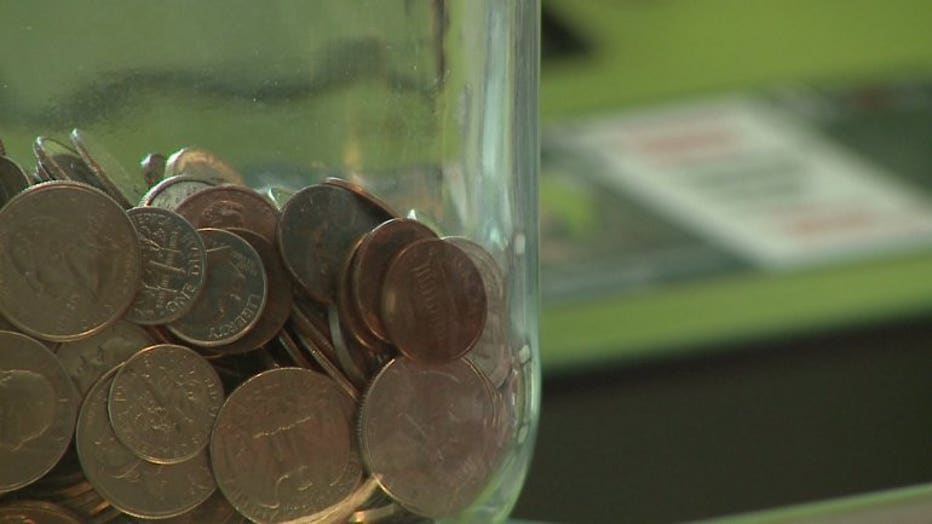Economic disruption of COVID-19 pandemic leads to national coin shortage, rise in contactless payment
Economic disruption of COVID-19 pandemic leads to national coin shortage, rise in contactless payment
Economic disruption of COVID-19 pandemic leads to national coin shortage, rise in contactless payment
MILWAUKEE -- Like a penny into a wishing well, the COVID-19 pandemic has had a ripple effect on the number of coins available across the country -- a national coin shortage. You might have seen signs at the gas station or grocery store asking that you pay in exact change or go cashless.
Meijer stores are still offering customers the ability to pay with their still-good greenbacks, just not in the self-checkout lanes.
"I know when I first read it, I was surprised," Susan Doyle, North Shore Bank retail banking senior vice president, said.

National coin shortage
Stay-at-home orders shuttered stores, interrupting cash and coin flow. In light of the shortage, North Shore Bank is opening its branches to anyone -- regardless of if they are an account holder -- to use the coin-counting machines for free. Extra coins that may be lying around get back into circulation and you get cold hard cash.
"We'll help get some coin back into circulation and therefore, in the end, we're really helping our fellow businesses so they can operate under normal conditions and not have to worry about exchanging coin in servicing their customers," said Doyle.

The pandemic has shown an uptick in contactless payments, too.
On the other side of the coin, some express worry that if retailers make more moves to cashless-only payments -- especially for those who don't use banks. For some, going cashless can put them in a deeper financial hole.
"When you say I can't use cash, what's my alternative? Is my alternative to get a prepaid card, put money on that card, and then continue to pay every single time I use that card?" said Constance Alberts, program manager at Bank of Greater Milwaukee. "In most cases, that is going to be a lot more expensive than if I was able to use cash."
The Federal Reserve said last month it is working on several fronts to address the shortage and increase coin production. It also said the issue will be resolved when the economy opens more and the coin supply chain returns to normal circulation patterns.

